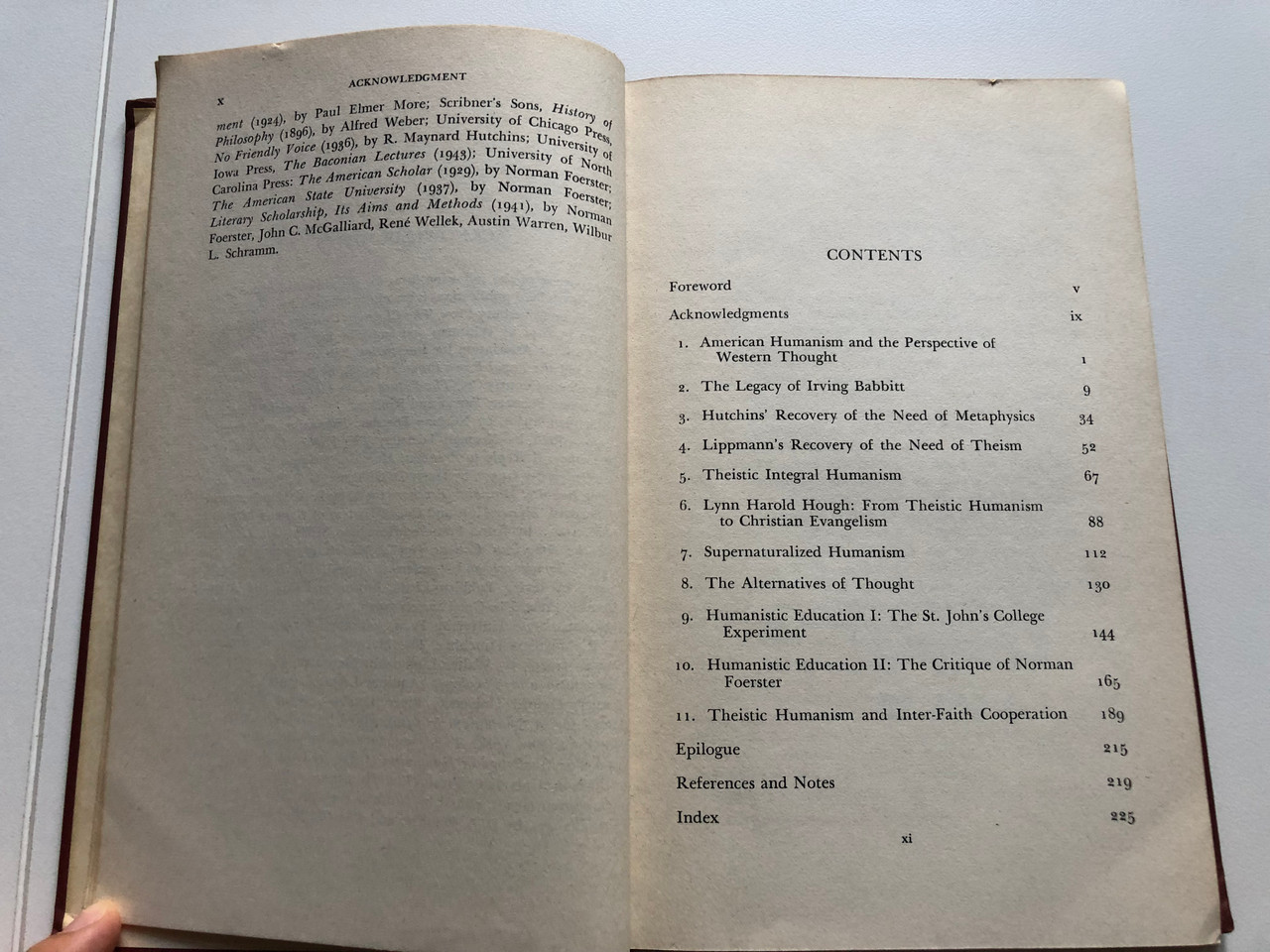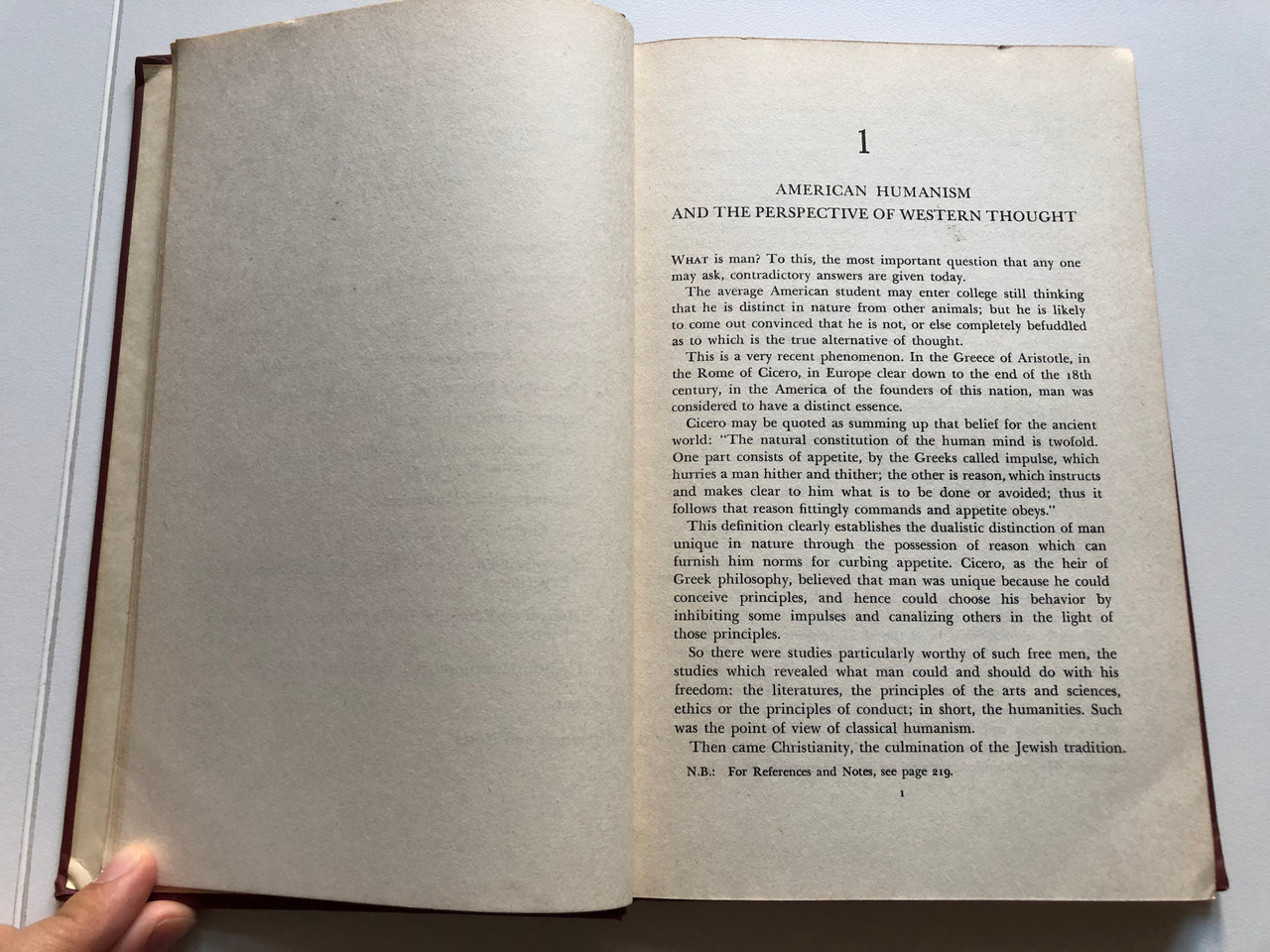Description
American Humanism and the New Age by Louis J.A. Mercier
- ISBN: B0007EIQFU
- Publisher: The Bruce Publishing Company, Milwaukee
- Publication Date: January 1948
- Format: Hardcover
- Pages: 227
- Language: English
- Weight: 0.95 lbs
Overview
American Humanism and the New Age by Louis J.A. Mercier is a thought-provoking exploration of human nature, philosophy, and spirituality in a rapidly changing world. Written by a winner of the French Academy Doctor of Letters and a Georgetown University professor of comparative philosophy and literature, this book delves into the historical, philosophical, and theological concepts that define humanity and contrasts them with the emerging New Age movement.
Mercier’s work examines the classical humanist view, grounded in the traditions of Aristotle, Cicero, and Christianity, juxtaposing it against the esoteric and eclectic beliefs of the New Age. The author seeks to answer the fundamental question: What is man? Through his insightful analysis, Mercier challenges readers to reflect on the tension between traditional humanism and the modern spiritual zeitgeist.
Product Features
- Author: Louis J.A. Mercier
- Publisher: The Bruce Publishing Company
- Publication Date: January 1948
- Language: English
- Format: Hardcover
- Pages: 227
Interesting Facts
- Historical Context: Written in the mid-20th century, the book captures a transitional period in Western thought, bridging classical philosophy with the burgeoning New Age movement.
- Author’s Prestige: Louis J.A. Mercier was a renowned scholar and recipient of the prestigious French Academy Doctor of Letters, lending significant weight to his analysis.
- Comparative Approach: The book contrasts classical humanism’s dualistic view of man with the holistic spirituality of the New Age.
- Timeless Relevance: Despite its publication date, the questions Mercier raises about human identity, freedom, and spirituality remain pertinent in contemporary discussions.
- Philosophical Depth: The book is enriched by Mercier’s extensive knowledge of Western philosophy and theology, offering readers a nuanced perspective on both traditions and emerging beliefs.
Key Themes
- The Nature of Man: Classical humanism's dualistic view of reason and appetite versus modern spiritual perspectives.
- Humanism and Christianity: Exploring the relationship between Greek philosophy, Roman thought, and the Judeo-Christian tradition.
- The New Age Movement: A critique of its esoteric origins, beliefs, and practices compared to traditional Western philosophy.
- Spiritual and Moral Questions: Examining how different worldviews address the ultimate purpose and destiny of humanity.
Publishers
Published by The Bruce Publishing Company, American Humanism and the New Age serves as a scholarly resource for those seeking to understand the intellectual and spiritual currents shaping human thought in the 20th century.
We value your feedback! Share your experience with this product to help others make informed decisions. Your review is important to us!
Hashtags
#AmericanHumanismAndTheNewAge #LouisJAMercier #PhilosophyAndSpirituality #Humanism #NewAgeMovement #ComparativePhilosophy #ChristianThought #BrucePublishing #ClassicalHumanism #ModernSpirituality #BuyOnline #RareBooks #ReligiousStudies #HumanNature























































